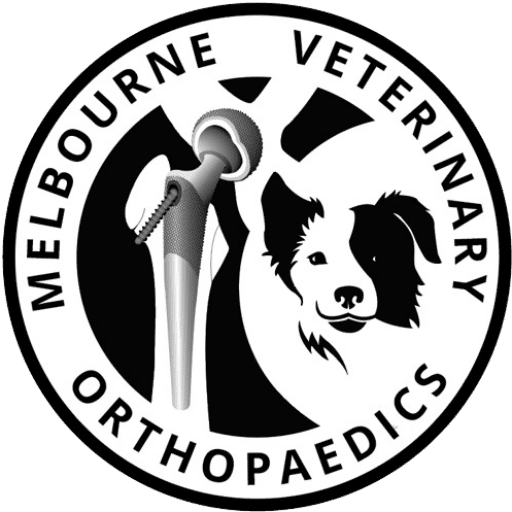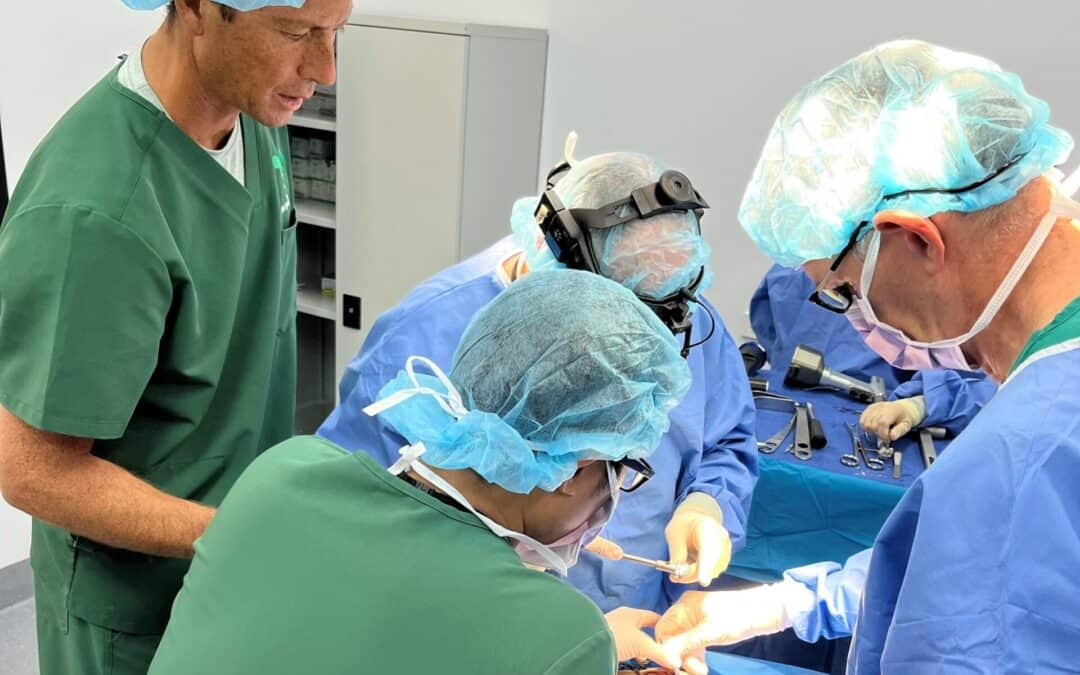1. Verify a Surgeon’s Credentials
There are a few ways to verify a vet’s credentials before making an appointment. These details should be available online:
Vic Vet Surgeons Board:
Every vet must be certified by their state’s board. Some states have websites that allow consumers to verify an individual vet’s credentials. They list specialists in each respective discipline.
Specialist training
A vet who has had residency training in orthopaedics (e.g. hip replacement, TPLO, arthroscopy, fracture repair, spinal surgery) has learned to perform the surgery under the guidance of other highly experienced specialist surgeons.
Professional affiliations
Almost all qualified specialist surgeons are also members of professional organisations, such as the Australian and New Zealand College of Veterinary Scientists (ANZCVS) or the American College of Veterinary Surgeons (Diplomate ACVS).
2. Prioritise a Surgeon’s Experience
Research shows that choosing an experienced surgeon increases the likelihood of a successful operation such as a total hip replacement.
For example, one study published in the Journal of Veterinary Surgery out of the UK in 2011: Use of the cumulative summation technique to quantitatively assess a surgical learning curve: canine total hip replacement.
- Proficiency was reached after 44 hip replacement procedures
- Complications of surgery dropped off significantly after each surgeon ascended the learning curve gaining proficiency
- Surgeons who do more than 50 hip replacements each year have better overall outcomes
A surgeon’s professional web page should indicate whether or not they follow up their cases, actively publish and if they specialise in a certain type of surgery. The American College of Surgeons recognises a handful of experts in joint replacement surgery (JRS), minimally invasive surgery (MIS) or surgical oncology (cancer surgery). These lists are available. Look for this information and also ask follow-up questions during the in-person appointment.
3. Ask Questions
Pet owners are entitled to research a particular surgeon and ask the surgeon and the surgical nursing staff questions, such as:
How many times have you performed this specific surgery?
Owners are encouraged to look for a surgeon who has extensive experience with orthopaedic surgery and in particular the operation your pet requires.
What are your complication rates?
A surgeon should be able to answer questions about how many patients get post-surgical infections, how many patients require a second surgery, and potential long-term complications. Ask if that surgeon has kept records of previous cases to track these adverse events and what these percentages are.
Can I talk to other pet owners whose pet has had the same procedure recently?
A surgeon may have former patients whose owners are willing to share their experiences and what to expect with the surgery.
4. Seek a Second Opinion
While not always necessary, it is okay to consult with another vet orthopedic surgeon and get a second opinion.
A second opinion is encouraged if the first vet:
- Lacks experience or qualifications
- Does not explain the procedure and recovery process to your satisfaction
- Does not fully answer your questions
Be sure to ask the second vet surgeon all the same questions about experience and qualifications as the first. Also, remember that the second vet’s opinion is not necessarily the best one.
Getting a second opinion or switching between practitioners is not unusual, and patients should not worry about hurting a vet’s feelings.

